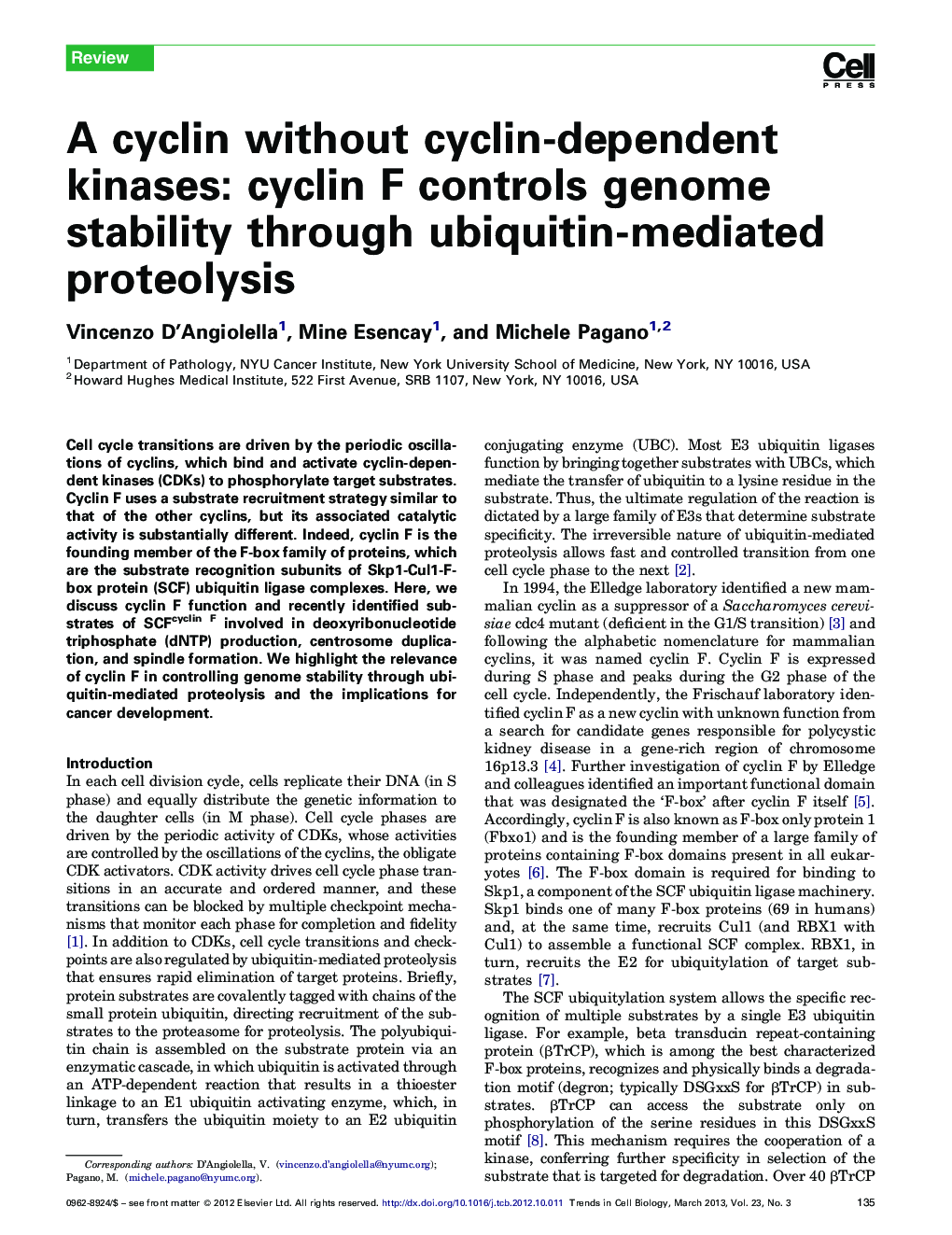| Article ID | Journal | Published Year | Pages | File Type |
|---|---|---|---|---|
| 2204570 | Trends in Cell Biology | 2013 | 6 Pages |
Cell cycle transitions are driven by the periodic oscillations of cyclins, which bind and activate cyclin-dependent kinases (CDKs) to phosphorylate target substrates. Cyclin F uses a substrate recruitment strategy similar to that of the other cyclins, but its associated catalytic activity is substantially different. Indeed, cyclin F is the founding member of the F-box family of proteins, which are the substrate recognition subunits of Skp1-Cul1-F-box protein (SCF) ubiquitin ligase complexes. Here, we discuss cyclin F function and recently identified substrates of SCFcyclinF involved in deoxyribonucleotide triphosphate (dNTP) production, centrosome duplication, and spindle formation. We highlight the relevance of cyclin F in controlling genome stability through ubiquitin-mediated proteolysis and the implications for cancer development.
